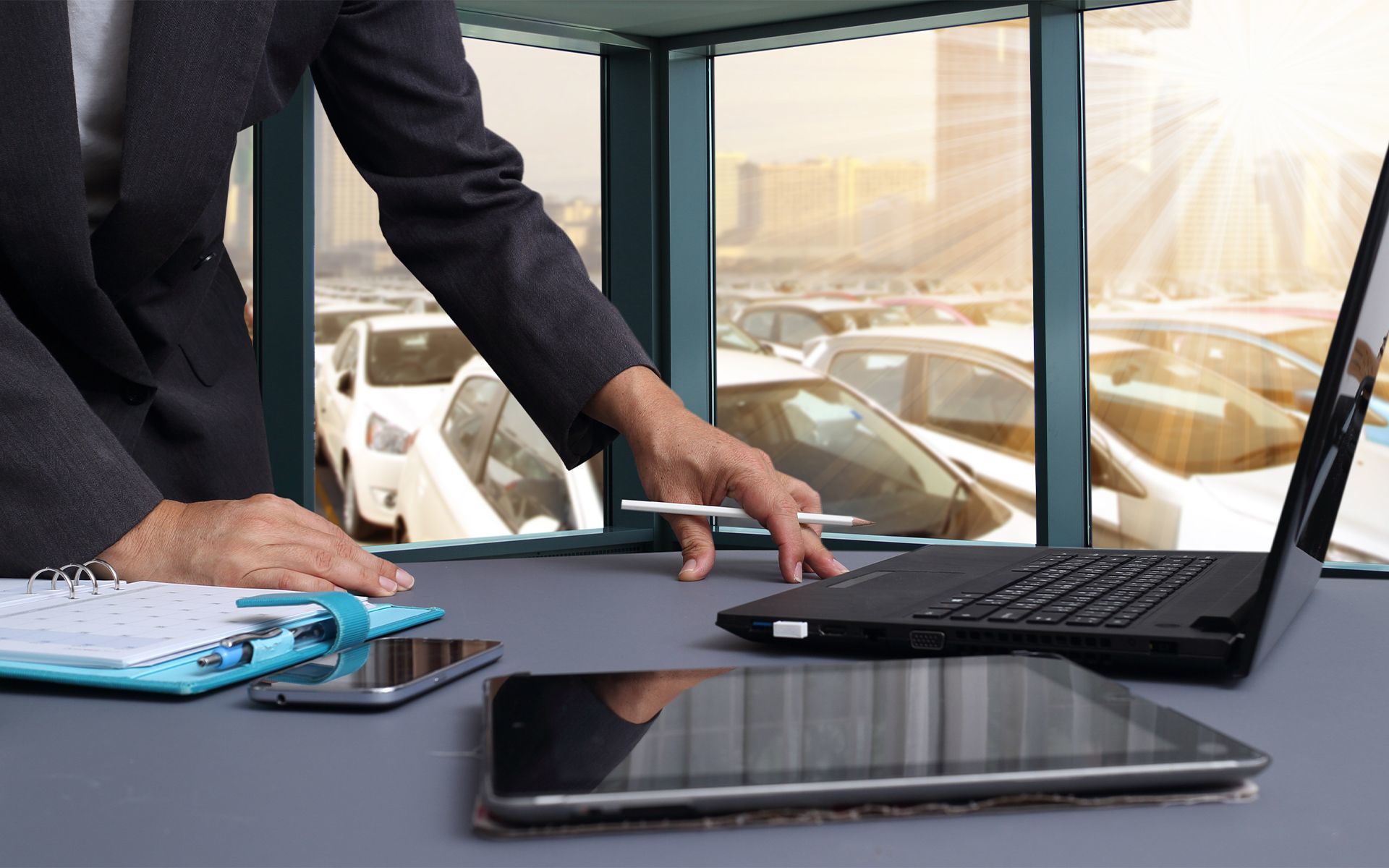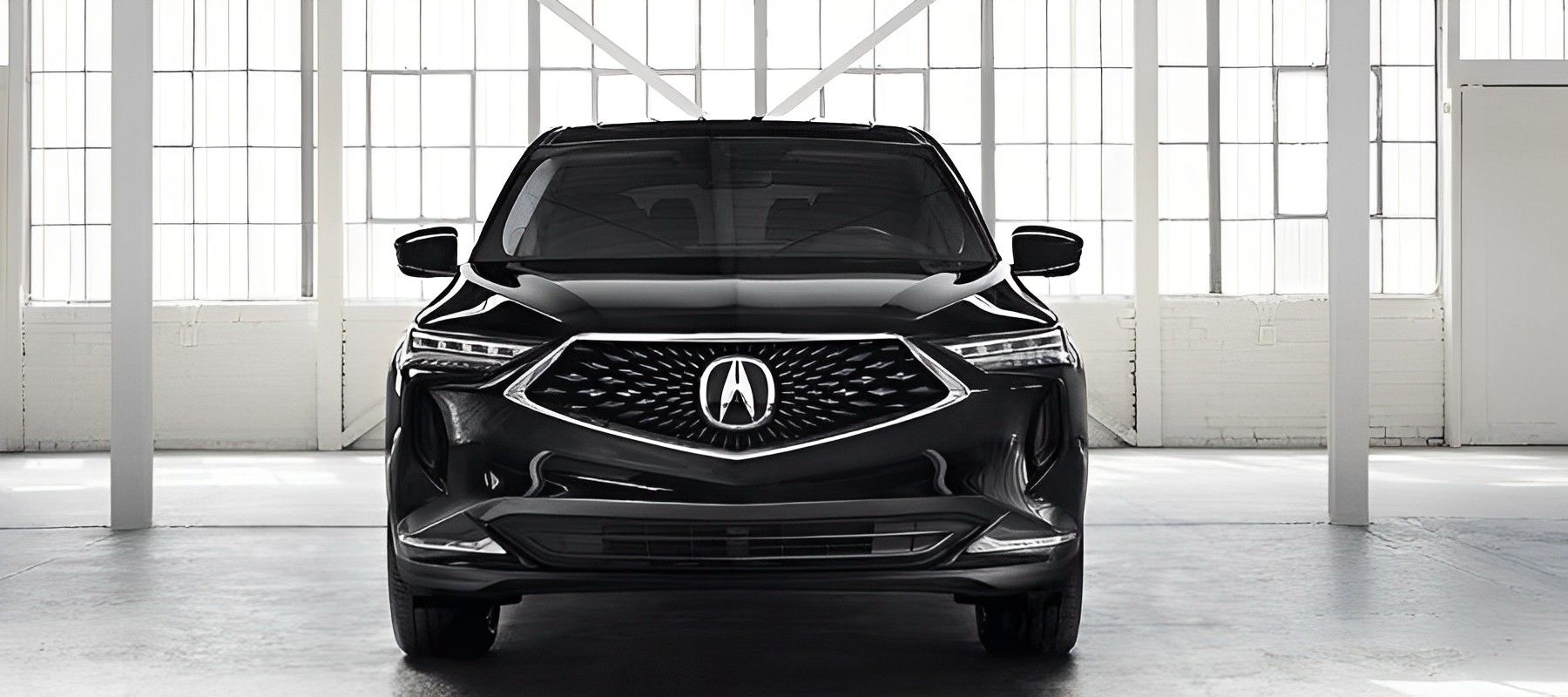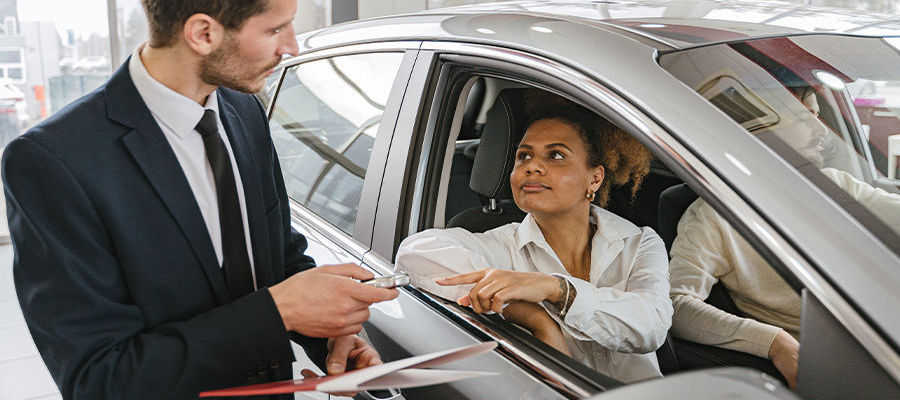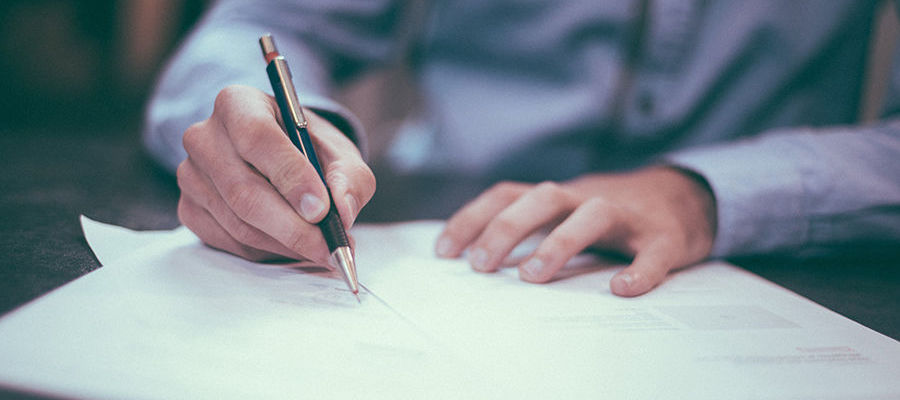March 05 2023,

If you’re in the market for a new car or SUV, you’ve probably considered trading in your existing vehicle. The advantages of that approach include potentially making it easier to upgrade and/or get a vehicle that better suits your needs and lifestyle, the selling process is more straightforward, and it eliminates the need to find a suitable buyer. Another primary benefit is that when you upgrade your vehicle via trade-in, you only pay the market value difference, which reduces your monthly installments.
We’ve put together a handy guide to help ensure you’re prepared when you visit your local Dilawri dealership to trade in your car.
HOW DO TRADE-INS WORK?

Though online tools are available to help you estimate your car’s value based on its make, model, and number of kilometres driven, the best way to get the most accurate estimate is by taking it to a dealership for inspection. There, a trained expert will check your automobile’s condition and performance, take it for a test drive, and will check the performance of the engine and other mechanical parts.
Once the dealer has completed their inspection, they’ll give you your vehicle’s current market value. At that point, you may choose to opt for a trade-in, which will be followed by a process of negotiation over the price, and determining how you’ll pay the remaining amount.
HOW IS THE TRADE-IN VALUE DETERMINED?
To determine your vehicle’s value, the inspector will look at a number of specific factors, including the year, make, and model. Having more than one trim with extra features can affect the estimate, as well. The assessor will also make conventional checks, including the condition of the vehicle’s exterior, interior, brakes, engine, and tires. In addition, the number of kilometres the car or SUV has been driven affects its trade-in value.
Finally, the inspector will consider your car's market value, assess whether it is in high demand in your area, and determine the current offerings for a similar vehicle.
WHAT HAPPENS TO MY CAR AFTER I TRADE IT IN?

Your automobile’s year, make, and model determine what the dealer will do with it after you trade it in. If it is in good condition and there’s demand, the dealer may sell it directly.
On the other hand, if the vehicle is old or wouldn’t be sold at a profit, the dealer could decide to sell it to a wholesaler, who would then sell it at an auction. The dealer could also dismantle the car into pieces and sell it for parts/accessories.
HOW TO INCREASE THE VALUE OF MY CAR FOR TRADE-IN?

You could bring your vehicle to a professional cleaning service to Give your vehicle a thorough cleaning inside and out, using a professional service. Or you can just vacuum-clean the interior cabin and treat the exterior with wax to give it a shiny look.
Paying for repairs now can benefit you much more when you trade in your car. Check for any damages, even the most minor details, and fix them before taking it to the dealer. Refill all the oils, fluids, coolant, and batteries, and ensure no service lights turn on in the dashboard.
It would make sense to bring along all the maintenance logs, documentation, accessories, and spare keys when you go to the dealership. This can significantly raise your vehicle’s price.
HOW TO EVALUATE MY CAR’S TRADE-IN VALUE?

You can check online for listings similar to your car. Check the prices on the same model with similar mileage to get a general idea.
You can also visit a dealership or a workshop and ask for an inspection and appraisal. Do this without intending to sell your car to this specific dealership. This will help you understand the dealers’ pricing policies, which may differ from the prices you see on online listings.
SHOULD I TRADE IN MY CAR OR SELL IT PRIVATELY?

It depends on you and your plans. If you’ve spent a lot of time and money customizing & upgrading your truck or car, then selling it privately might get you higher gains than trading.
Moreover, when you trade your vehicle, you save money by paying only the market value difference. Suppose your vehicle holds a higher value. In that case, you can save up on tax. You’ll only pay taxes on the price difference you receive after the trade-in, rather than the whole selling price of the car.
IS IT POSSIBLE TO TRADE IN A FINANCED VEHICLE?

It depends on the value you receive after the trade-in, compared with the finance loan remaining. If you receive more money after trading than the remaining loan, then the money will offset the loan. Meaning, the rest will go to finance your new purchase.
But, if your car is valued at a lower price than the remaining loan, then you enter what’s known as a “negative equity” or “upside down” loan. With a negative equity loan, the dealer will simply add the remaining loan towards your new loan, and recalculate your loan payment.
CAN I TRADE IN WITH A BAD CREDIT HISTORY?

Most probably, yes, depending on the trade-in value you receive and your credit history. Usually, it’s challenging to get finance options when you have a poor credit history. You’ll need to find special institutes to finance or a co-signer to guarantee your car loan.
However, if you’re expecting a higher value from the car trade-in, and you’re buying a new vehicle with cash, then you might have higher chances of getting your trading deal approved.

 Canadian-Owned and Operated Since 1985
Canadian-Owned and Operated Since 1985